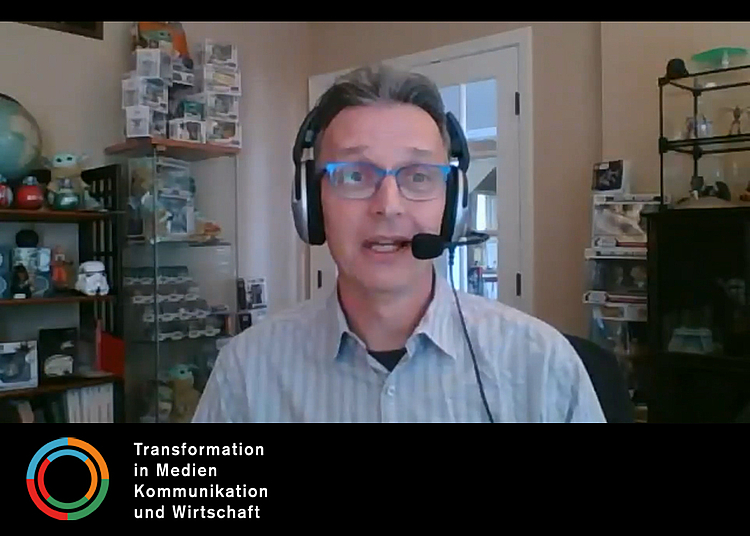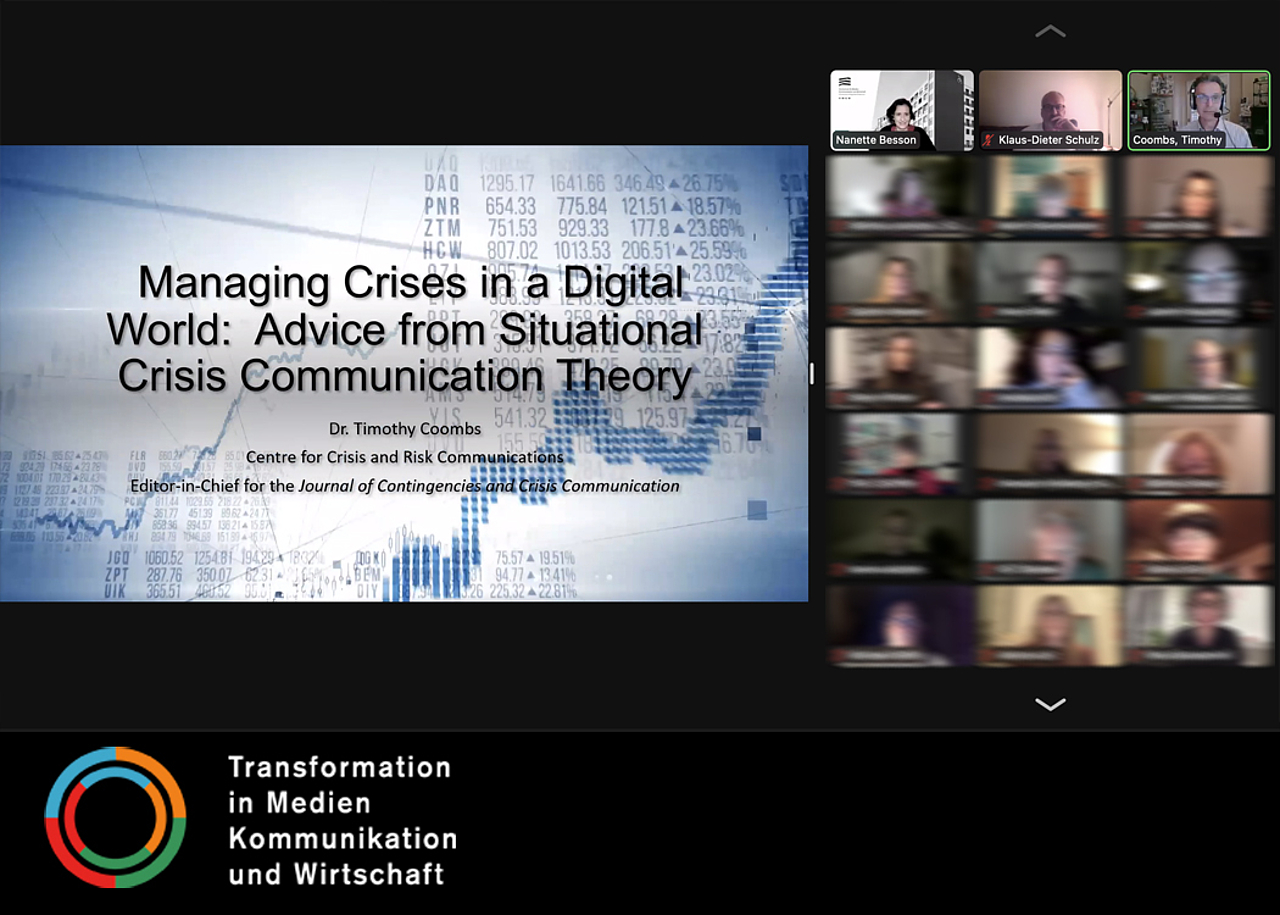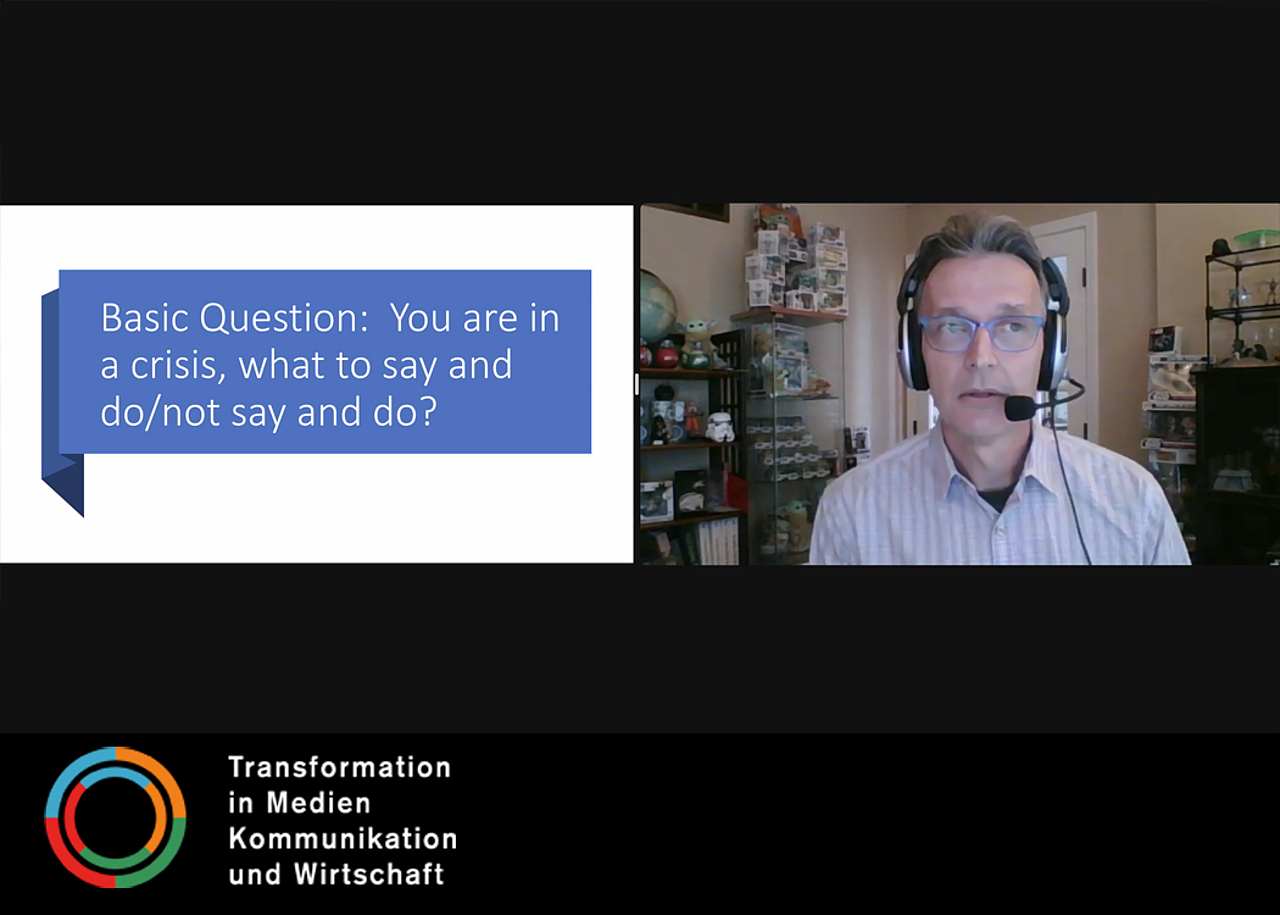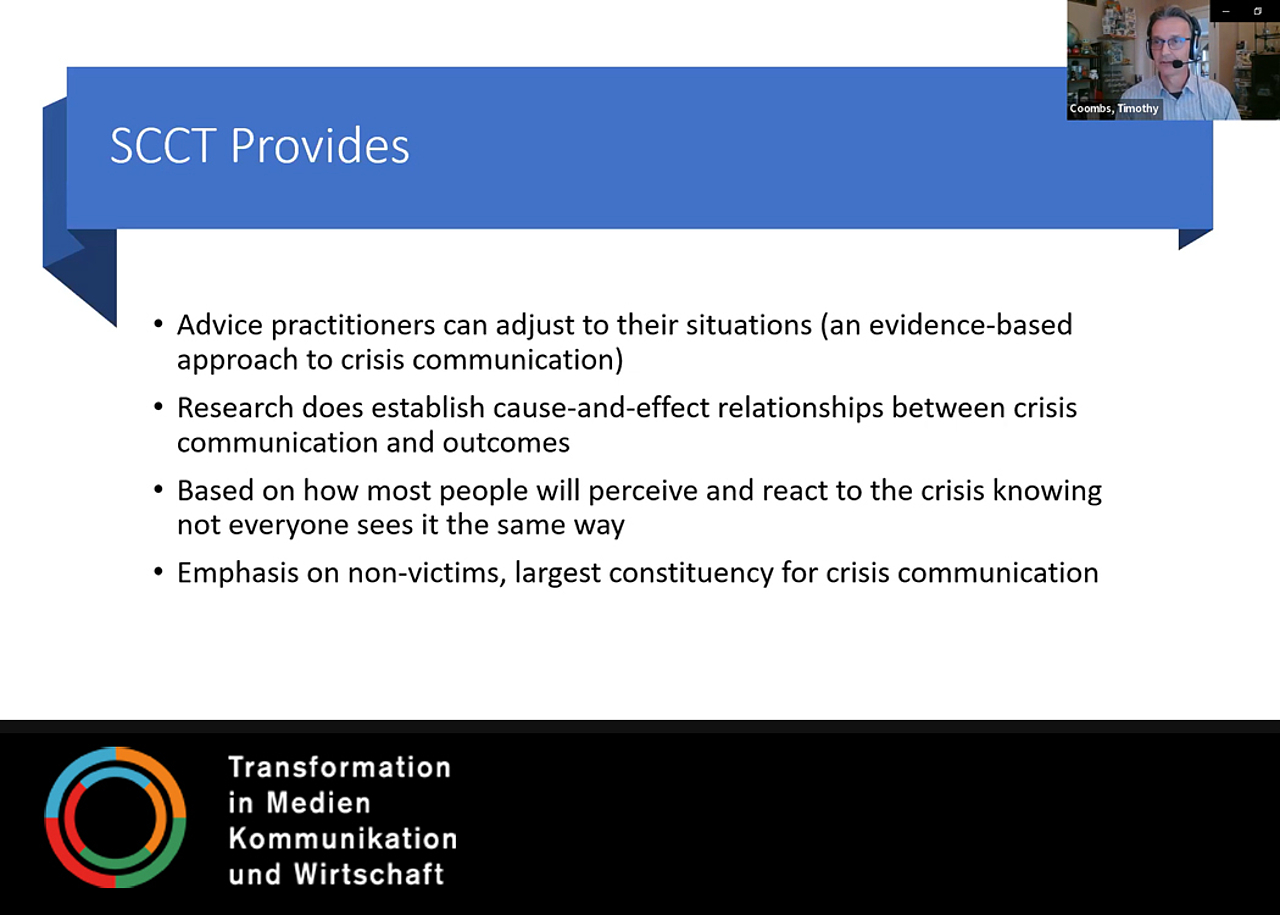From Ohio and surrounded by his Grogu „Baby-Yoda“ collection, the self-confessed Star Wars fan conveyed via Zoom authentic enthusiasm for his research object: the crisis. "Scansis," the combination of scandal and crisis, represents the most powerful form of crisis, according to Dr. Timothy Coombs, professor of communication at A&T Texas University. The phenomenon is caused by companies themselves, he said, when they deliberately act immorally for their own benefit. The public's reaction: such crises are condemned by stakeholders in "flaming" emotionalism as "infamous."
According to the Situational Crisis Communication Theory (SCCT) of Prof. Dr. Timothy Coombs, classic crisis management strategies do not work in extremely emotionalized "scansis" situations. Stakeholders would demand a "punishment." A simple apology would not be enough for them. Instead, in addition to a full admission of guilt, they expect a ruthless explanation of how the behavior was reprehensible, what is being done to repair the damage, and what steps are being taken to ensure that it does not happen again. Timothy Coombs includes these crises in the third crisis cluster of his theory, the "avoidable crises". The two other clusters, the "victim crises" and the "accident crises," do not evoke "flaming" emotions of this intensity. They are characterized by a "cool emotional stakeholder response."
Lecture series: "Crisis Yoda" visits from the USA

Surrounded by his collection of „Baby-Yoda“ Grogu: Prof. Dr. Timothy Coombs conveyed enthusiasm for his object of research: the crisis.
Presentation of the SCCT crisis theory
Prof. Dr. Timothy Coombs gave an exciting guest lecture as part of the lecture series at the invitation of Dr. Nanette Besson, Professor of Corporate Communication in the Media University Department of Journalism and Communication in Cologne. He presented the latest findings on his established and internationally recognized SCCT crisis theory, which is recognized as a part of the standard body of theories on PR and corporate communications. Prof. Dr. Coombs developed the Situational Crisis Communication Theory in 2007 on the basis of attribution theory. It explains crisis situations by linking responsibility, crisis response and reputational damage. Empirical studies have used mostly experimental designs to examine the relationship between crisis management strategy and effects on recommendation behavior, purchase intention, and stock price.
In the case of weak crises, which Prof. Dr. Coombs refers to as "para-crises," and in the case of moderately severe crises, the relationship between recommended crisis behavior and effect was demonstrated. There was indirect "third party punishment" in these crises by changing one's behavior. In morally reprehensible crises, on the other hand, direct, immediate punishment was called for. Effects on reputation, which are only immediate and delayed, are irrelevant in "scansis" crises. Moral condemnation produces an immediate "pillorying."
Different cultures
The U.S. communication scholar highlighted the difference between "victim" communication and "non-victim" communication. Victim communication is usually not public in a crisis, he said, and therefore cannot be studied empirically. The larger stakeholder group, according to Coombs, is that of the "non-victims," but they would pose a very significant threat to the company.
Coombs also outlined the influence of culture on stakeholder expectations: American culture creates a fear of avalanches of lawsuits with immense recourse for companies that admit guilt. In other countries, however, a company's apology is considered honorable and is expected as a matter of course. The cultural approach to misconduct and admissions of guilt must therefore be taken into account in crisis management.
Traditional media still in demand
Prof. Dr. Coombs recommended that all channels should be used in crisis communication, not just social media. He made clear that traditional media and personal communication must also be used to reach all relevant stakeholders. For example, he said, traditional notices and e-mails are also in demand.
Finally, Coombs pointed out that the exchange between PR practitioners and PR science is essential for researching processes and interrelationships in crisis communication in order to test the functioning of communication strategies and the legitimacy of theories.


